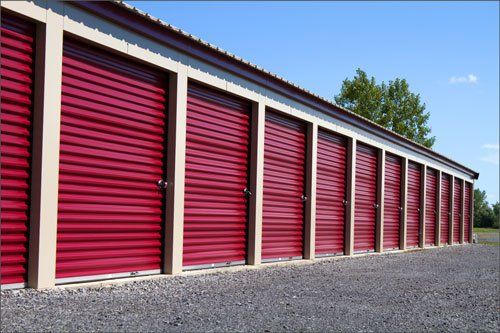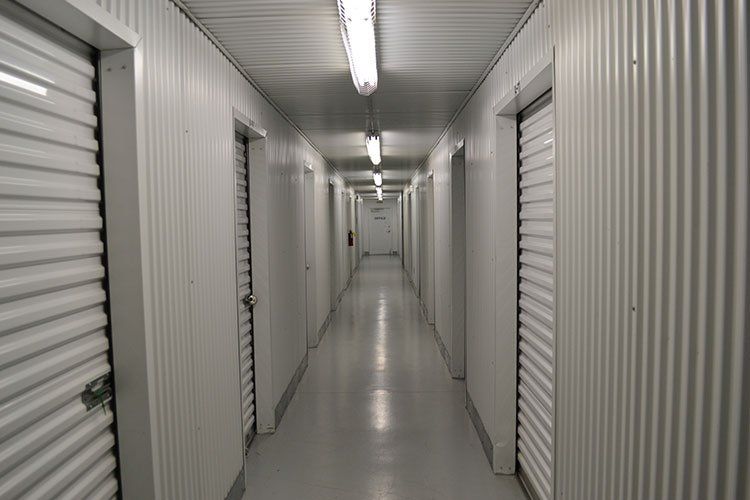6 Steps for Preventing Mold Growth in Storage Units
- By websitebuilder
- •
- 11 Apr, 2018

Mold can grow nearly anywhere and can quickly become a problem that is out of control before people are even aware it is a problem. Mold can be a particular problem in storage units where the belongings may be unattended for weeks at a time. Here are a few tips for keeping a storage unit mold-free.
1. Clean Items Thoroughly
Wash and dry all textiles before packing. You need to be certain that curtains, bedding, clothing, and any other fabrics are free from biological materials, dust, and mold spores. Clean stored appliances very well, both inside and out, to prevent any growth of mold.
Also remember to clean out small appliances like toasters and waffle makers as well as larger ones like stoves and refrigerators.
2. Dry Everything Carefully
If your items are coming from a humid environment or a home with dampness issues, make sure to dry everything before transporting the items to the storage unit. Another good idea for humid environments is to operate a dehumidifier in the room where the items are gathered for a few days prior to moving them to the storage unit.
Be careful about how the packages are handled if the belongings are in cardboard boxes. Cardboard absorbs moisture easily, so if they are placed on wet grass while a truck is loaded or if it is wet outside on the day of the move, the boxes may be wet when they arrive to the storage unit.
Avoid placing any wet boxes in the storage unit to prevent against mold. If your boxes get wet, either repack the items in new, dry boxes before storing the property, or choose plastic totes that can be wiped off.
3. Store with Care
Install shelving in the storage unit to keep items off the cold and potentially damp concrete floor. This is also a good idea in the event of an emergency weather situation where flooding could take place. Avoid wrapping items tightly in plastic because the material is not porous, and while plastic can keep moisture out, it can also lead to condensation inside the plastic that can promote mold growth.
You also want to be cautious about bringing in items or leaving exterior doors open during wet weather. Do not stack or cram boxes and clothing racks too tightly into the unit. Ventilation prevents moisture buildup and space around the belongings allows the air to flow.
4. Include Some Desiccants
Silica gel is one of the most commonly recommended items for storage units. The small, affordable packets are easy to use and can fit into any size box, inside shoes, and elsewhere. Additional desiccant options are charcoal briquettes or clay kitty litter in a bucket in the center of the room. Both products will help to remove moisture from the air.
Replace the silica gel packets every few months and the kitty litter and the charcoal about every six weeks because they will eventually become unable to absorb any additional moisture. Replace more frequently if the weather is very humid or if the unit is accessed often and exposed to frequent temperature changes.
5. Avoid Prohibited Items
Avoid storing liquids or perishable items including food, plants, and even potting soil. Liquids like cleaning supplies, perfumes, and shampoos are risky to store because they may spill during transport or fall and break while in the unit and saturate surrounding items.
Remember other odd items that may also contain perishables. Christmas decorations that include cinnamon sticks, gingerbread ornaments, or popcorn garlands are a common example of easy-to-forget perishables.
6. Monitor the Unit
Check on stored items regularly or have someone visit the unit if the owner is not available just to make certain the property is safe and dry. Purchase humidity control cards and bring one to the storage unit for every visit. They are easy-to-read paper cards with colored dots that reveal the amount of moisture in the air with the brightest dot as the current reading.
Storage units are a safe and convenient way to protect property when moving, remodeling, or when a home is too small. The actions that you take while using the unit matters, but the quality of the facility is even more important. At All American Storage, we offer a reliable and secure site. Contact us for more information or for current pricing.
When you pack items for storage, you want security and protection for those items. Learn about four environmentally friendly replacements for bubble wrap.






